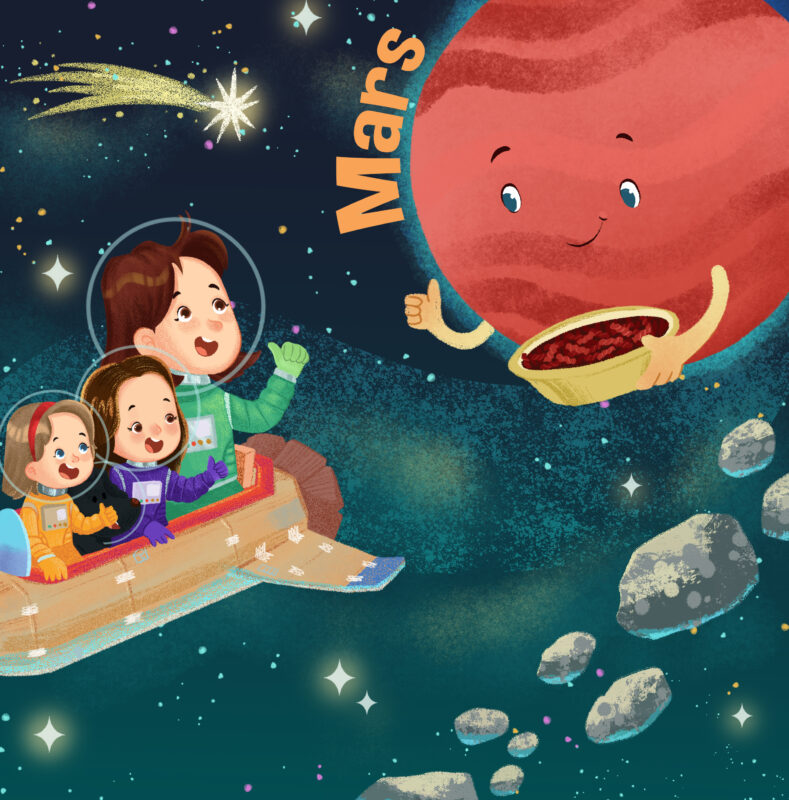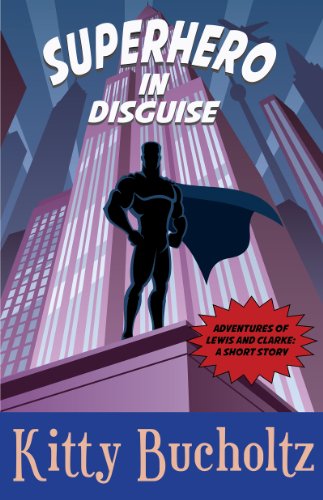After
August 30, 2020 by Dianna Sinovic in category Quill and Moss by Dianna Sinovic tagged as Dianna Sinovic, flash Fiction, Hope, short fiction, we are not alone
I found the rooftop garden because of Captain America. We’ve become close friends, he and I. He depends on me for fresh greens, and I depend on him to keep me from taking the last step off the ledge.

The electricity blinked off citywide five weeks ago, but the evenings aren’t as dark as you’d think. There’s the residual glow in the sky long after sunset, and the ants that crawl along the windowsill in the kitchen give off a greenish hue, like those plastic glow sticks kids wear around their wrists at birthday parties—or used to, before. The Captain is crepuscular, so he rustles around just at dusk, but then falls fast asleep as I watch the clouds on the horizon with wide eyes, such an unnatural pink against the faint sprinkle of stars.
Except for me and the Captain on the sixth floor, no one else is left in this building. Before, I sometimes had to turn on my white noise app to mask the street traffic and my neighbor Javier’s blasting salsa music. Now the only sounds are the distant whine of a massive piece of machinery spinning into oblivion, fed by its emergency generator, and the thumps and rattles of my building, trying to decide how much longer it will remain upright.
The evening is my favorite time of day now. Before, I lived for the morning, up before the alarm, out the door, at work in my cubicle in the financial district a few minutes before eight. Daytime reminds me of everything I no longer have–that the city no longer has. Maybe even beyond? It’s hard to say. With no juice to charge my phone, it’s been dead since four days after. That hardly matters because I lost coverage after a day. My parents live in Florida; maybe all is well there.
For some freakish reason, the plumbing still works. When life was normal, leaky faucets and cold showers were the stuff I commiserated about with my friends. Now, I wake each morning worried that the toilet will at last stop cycling or my kitchen tap will run dry. But they keep on filling and pouring.
Once they do quit, I’ll need to leave this place. I’ve been living on canned food, heating it on my tiny balcony with the mini Weber grill I hardly ever used, before. Without electricity, my fridge isn’t much help to store perishables. In the beginning, I helped myself to the romaine and tomatoes and strawberries at the corner market; with no one around, there was no use letting it go to waste. But that has long rotted, so my visits now are to fill my cloth grocery bag with whatever cans I can carry in one trip. It’s decidedly creepy to crawl through the rubble of a dead city—no cars passing, no people yelling into their phones, no trucks trudging to collect the garbage left decomposing at curbside.
The Captain isn’t mine. Captain America isn’t his real name either. He lived on the fourth floor, and I found him in the first few days after. Guinea pigs whistle when they’re hungry or need something, and he was setting up a racket I could hear from my sixth-floor window. I went searching, taking the stairs, of course, since the elevators ran on the energy grid. He was sitting in a 2-foot wire cage, looking at me with big, soulful eyes (and big teeth), and I picked him up, his tawny fur as soft as a kitten’s.
“Hello, there, Captain,” I whispered.
It was another living thing, not counting the immortal ants and roaches. But what did I know about guinea pigs? A city branch library is about three blocks from my building, so I went looking for a book to tell me, a tough hunt given that the online catalog was offline and the lights were out. If you need to know, guinea pig books are in section 636.9—with books on other small mammals like rabbits and hamsters.
Before, I liked looking out onto the courtyard between my building and the next one, where an older fellow named Pete raised tomatoes and squash and tried to keep the squirrels from taking bites out of them. Now the courtyard floor is buried in debris, and Pete and the squirrels have vanished along with the pigeons.
Just after I brought the Captain home, and desperate for some kind of greens for him, I located the entrance to the building roof. As I popped open the steel door, the earthy scent of soil washed over me and there it was: Three long aisles containing flat after flat of lettuces, cucumbers, cherry tomatoes, and more lettuce. I stood for several minutes, not believing my find. The wind picked up and a pelting rain fell, the first since before. I felt both drenched to the bone and refreshed, watching as the droplets ran down the lettuce leaves and dripped off the ends, exuding a faint bluish glow even by the light of day. My arms and legs—and likely my head—also glowed faintly in the dampness.
Later, with the Captain asleep and night descending, I pondered this new world where the sky was pink and the rain was blue. A line had been drawn for humanity. What I would find when the Captain and I finally struck out from the city? Would we meet masses of people who had fled … or no one? Or maybe, I thought, I’m crazy, and the world is still normal, but I just can’t see it.
It is now day forty after, forty empty days and forty empty nights. I am harvesting more romaine leaves and anxiously watching the new shoots I have planted poke out from the soil. Then I hear someone. They are walking on the street below, whistling. I slip to the roof edge to listen—it’s an old folk song, “For the Times They Are A-Changin’.”
Despite our catastrophic reality, a sense of humor.
“Hey,” I shout, but he doesn’t look up, doesn’t seem to hear me.
I run for the stairs—eight flights to street level—will I make it before he’s gone? I take the steps two at a time, then three. The Captain and I are not alone after all.
0 0 Read moreOne Small Sign
July 30, 2020 by Dianna Sinovic in category Quill and Moss by Dianna Sinovic tagged as Dianna Sinovic, fiction, flash Fiction, short storyOne Small Sign
The house was still—so quiet and somber after Gran’s passing—but Kiri refused to turn on the TV or crank up her earbuds just to fill the silence with trivial sounds. She wanted to catch the memory of Gran’s voice, to hear that mischievous laugh again. Within that nothingness, the faintest of snuffles echoed in the hallway outside Gran’s study, where Kiri was reviewing for a test.
Putting her Econ book face down on the desk, she stepped close to the hall doorway and listened.
There it was again. Snuffle, snort.
Unnerved—she was alone in the house—Kiri poked her head cautiously around the door frame to look down the hall. Empty.
With a small sigh of relief, she walked down the hall and into the dining room to check there. The room was cramped not only with the eight-foot dining table, but also a sideboard, a corner cabinet and a large breakfront. She’d eaten many a meal in this room, with her Gran and, in the years before his death, Gramps presiding. Now both were gone. Despite the bulky furniture, the room felt empty, lifeless.
Scanning the area, Kiri noticed a small figurine on the otherwise cleared table. She picked it up. About six inches long and four inches high: An antelope with its feet tucked neatly beneath it, two short, thin horns, and large deer-like ears. It seemed to gaze at her with dark glistening eyes.
“Where did you come from?” Kiri addressed the object, turning it over.
Oribi, a small African antelope, the label affixed to the bottom said.
Kiri’s gaze wandered to the breakfront. In addition to Gran’s delicate china pieces with their faint blue cloud pattern, the shelves held a few other figurines: an impala and a gazelle, their horns much longer and more curved than the oribi’s.
Gran had a thing for antelopes even though she’d never seen one outside of the Philadelphia Zoo. “To be able to run with that grace and speed,” she told Kiri. “It must be an incredible sight on the savanna.”
Africa had been on Gran’s bucket list, but the Fates had another idea: cancer.
Kiri put the oribi back in its place, with the others, and closed the breakfront section. It had been a month since the memorial service and her parents’ decision that Kiri could live at the house, but how she missed Gran.
As evening came on, she cooked herself dinner, washed up, and went back to studying. Her class final was in two days.
Deep in thought on volume discount pricing theory, she was startled by another noise from the hallway.
Snuffle, snort.
Once again, Kiri followed the noise to the dining room, and there sat the oribi figurine, back on the table.
She picked it up, but this time, she carried it with her to the study. Clearing away a few papers and notebooks, she put the figurine under the desk lamp. How odd. Its head was turned now, instead of looking straight ahead. She ran her fingers along the antelope’s ceramic neck but could feel no place where it could swivel.
Two hours later, Kiri yawned and stretched. She had finished her review. She closed her laptop and textbook, and reached to switch off the lamp. The figurine had vanished from the desktop.
This time, Kiri jumped to her feet. What the—?
In the pool of light from the lamp stood the quavering image of an oribi—at about two feet high, it was the size of a medium dog, but with thin legs, small hooves, and no horns. Ethereal, the doe nuzzled Kiri’s thigh.
Then the realization hit her.
“Gran, is that you?” Kiri knelt and put her hands on either side of the creature’s face. It made no move to pull away, only looked at her with those same dark glistening eyes. Was that a hint of a smile? A moment later, Kiri was once again holding the figurine.
That night, she nestled the ceramic piece next to her pillow and dreamed of running fleet-foot across a sea of grasses under an equatorial sun.
2 0 Read moreNight Light by Dianna Sinovic
March 30, 2020 by Dianna Sinovic in category Quill and Moss by Dianna Sinovic tagged as flash Fiction, short storyNight Light
The garrison commander had barely closed his eyes, ready for the escape that sleep would grant him, when the duty officer shook his shoulder. Newbolt was new but competent, so his lapse of protocol—waking him instead of dealing with the crisis on his own—surprised the commander. The fear in Newbolt’s eyes was genuine, though.
“Another checkpoint problem?” For more than two months, the Runeheads had been slipping past the guards, somehow blending in with the regulars on the route into Locke Town. The garrison’s whole purpose was to monitor the traffic in and out of the city, to stop the Runeheads from gaining a foothold there.
“No, sir.” Newbolt was nervous.
Mosby sat up in bed and reached for his tunic. “What then?” He dressed quickly but thoroughly, aware that the chill of this alien night would knife through him if he wasn’t prepared.
“It’s the blinking light, sir.”
Inwardly, Mosby groaned. It was difficult enough to keep the garrison fully staffed because of its remoteness from Earth-based settlements. Throw in a race that lacked humanoid features and resented the soldiers’ presence. Now he faced his latest challenge, dispelling rumors of the Runeheads’ telepathic control of energy. Three men in the last week had requested a transfer after reporting a flashing light that immobilized them.
“Show me.” He followed Newbolt out to the perimeter gate. The guard station was awash in floodlights, but the brightness stopped a few feet out and the terrain beyond was inky, empty and quiet. “Shut off the lights,” Mosby ordered. He and Newbolt stared into the sudden darkness for several minutes. With his hand on his stunner, he wondered if he could trust Newbolt. Perhaps the duty officer and the others who had seen the phenomenon were in the first stages of hallucination disorder. He would need to file a report, encourage them to seek treatment, and ask for additional staff while they were on sick leave.
“There,” Newbolt hissed.
Mosby scanned the blackness, hoping he would not see anything.
“There—do you see it?” Newbolt’s voice quavered. “What is it? It’s got to stop.” He disappeared into the night.
“Newbolt, wait.” Mosby listened for his footsteps but heard nothing. He moved to switch the floodlights back on, but above and to his right, a green light began blinking. It was small but insistent, and it was moving. “Newbolt?”
0 0 Read moreCurly Tuwitt and the Rhode Island Red
March 19, 2020 by Jenny Jensen in category On writing . . . by Jenny Jensen tagged as flash Fiction, short story
Yesterday Rebecca Forster posted a challenge on FB. Write about whatever pops into your head right now. I’d just listened to the 1st WH news conference and feeling an odd mixture of ignorant, apprehensive and sardonic this is what came tumbling out:
Only one Rhode Island Red crowed like that. And it hadn’t come from Scoundrel’s pen. Curly Tuwitt ground his teeth—all seven of them. He hated that wart faced, belly slitherin’, wrinkled old hag on a good day but this—this was the last straw from a lifetime of her crap.
Already het up over the never ending updates and dire warnings about that Chiineeze virus pouring from the TV, pissed that he’d failed to stock up on anything and was out of everything. (There was that one lone can of beans, and he hated to think what that could lead to.) A second, clearly distant call from Scoundrel chased out any thoughts of supplies and focused his blazing anger.
The first time he’d seen her was skippin’ across his grannie’s strawberry patch, just a pickin’ and a nibblin’ her way through those fat ripe berries like she done own it all; like she’s the one who’d been out in the last frost, barefoot and freezin’, just to get the young plants covered and then come early summer who you think did the weedin’ and the waterin’?
He wasn’t but six and that girl looked tall. Despite that he knew she weren’t much older than him. With that fiery red hair and those rusty freckles like she was in the way come sloppin’ time he knew this was Marjo Geordy. Pa said that whole clan was troublesome.
“Hey, you there! Put them berries down now or I’m a gonna whoop your skinny butt fer stealin.” Curly’d made his voice as deep and growly as he could and he’d stood his ground, frowning, like a man ready to make good on his word.
Marjo looked up, slowly placing a purloined berry into the basket on her arm. Her mouth, red with the smear of ripe strawberries, looked to be dripping in blood. A slow, malicious smile bared reddened teeth. “Where you want me to put ‘em, big scary man?”
Marjo didn’t sound scared and for a moment Curly was flummoxed. “Down. Put ‘em down. Right there.” Curly pointed vaguely to the edge of the patch. He hoped he sounded as stern as Pa when he caught Curly in the sugar bowl.
Marjo looked to where he’d pointed. Her smile got even wider and she turned back to him. “Okay. But you better be ready to grab this basket quick. I don’t give up easy.” Her long legs took three steps to the edge of the patch and reaching out one long skinny arm she placed the basket high on the top of a bush. Three reverse steps took her back in the patch. She didn’t have to say a word; her whole body screamed challenge.
Curly looked to the basket and knew he’d have to jump to reach it. I’m fast; I can do it. Running like lightening he’d leapt into the bush, grabbed the basket and got a snoot full of unmistakable scent—poison sumac. A cackle of mirth faded into the distance. That was just the first time.
Curly understood life takes us on unexpected paths. From his family’s farm down the road of economic highs and lows he’d come near his end in this dusty settlement of trailers, not more’n 60 feet from his nemesis. There was some satisfaction in seeing Marjo brought to the same pass but she had taken Scoundrel and that was the final poke she was gonna take at him.
Heaving himself out of the recliner he slammed out the door, grabbed his pitchfork and stormed across the open 60 feet. “Marjo Jean Geordy you give me back my rooster or I’m gonna use this pitch fork to take him.”
“Possession is nine tenths of the law. Got papers to prove that last one tenth?”
“You stole Scoundrel and you know it, you skinny old cow.”
“Naw. No stealin’. I just took him to try him out. I like him. That rooster is as purdy as everyone says. I‘ll trade ya for him.”
It was always like this. Marjo Geordy bein’ all reasonable like and Curly Tuwitt gettin’ flustered and maybe a little confused. “You can’t trade for somethin’ ya stole.” Curly glared at Marjo who leaned calmly against her little storage shed.
“Mebbe not in regular days but things’re a bit different right now. Might be there’s somehin’ you want more’n that rooster.”
Curly lowered his pitchfork, eyes wary as he saw the familiar smile creep over her lips. “What could I possibly want more’n the best Rhode Island Red in the tri-counties?”
Still graceful and wiry after all these years Marjo turned and pulled the shed door open, bowing like she was presenting the Queen of Sheba. Curly stared into the shadows at rows and rows and stacks and stacks of toilet paper.
It had always been like this and it looked like it always would.
4 0 Read morePayment in Kind by Roxy Matthews
April 24, 2019 by marianne h donley in category Apples & Oranges by Marianne H. Donley tagged as #Charmed Writers, flash Fiction, Roxy Mathews, The Charmed Connection
Last month in the Facebook Group, The Charmed Connection, members of Charmed Writers posted some flash fiction short stories in honor of St. Patrick’s Day. Charmed Connection members voted for their favorite stories. The top four stories will be published this month on A Slice of Orange.

Our third story in this collection is by Roxy Matthews.
Roxy Matthews is the author of several self published novels, McBride’s Gem, Numb, and Second Time Sam, with several others due out this year. She’s also a contributor to Charmed Writers Presents: Flash Fiction 2019
In addition, you can read more about Roxy in the interview she did with Jann Ryan here on A Slice of Orange.
Payment in Kind
Nightmares were a thing Joey Scallone knew much about. His family was the toughest mob family in all of Chicago and surrounding cities. They were widely known and feared. Yet there were always those who thought they could outsmart and outgun a Scallone. He watched many a man perish gruesome deaths at the hands of his old man and two older brothers trying to prove themselves worthy. And they’d always left in body bags.
Joey never partook in the beatings or slayings, but he had dumped the tarp wrapped bodies when the smoke cleared, helped clean up any evidence that a Scallone had been in the vicinity. Because of his crimes, he’d been plagued with the visions of those unlucky men nightly. One in particular. Just the memories of the old man’s final words sent a shiver down his spine.
Joey tried to convince himself that he deserved what he’d gotten. Old Man Bishop could not ‘order’ his family, no one could. That big mistake would have dire consequences in the end. But his own excuses for his family’s actions did little to dissuade the nightmares that woke him from his sleep in a cold sweat, his sheets soaked, clinging to his bare flesh. Nor could it drive the old man’s words from his mind. “Since you won’t pay for the work I did for you, I’ll be back for that gold. Mark my words.”
Joey shivered, nervously ran his tongue along the three gold teeth Old Man Bishop had fit him with after a brawl with a local barkeep. His old man had promised to pay Bishop handsomely for the work and as far as Joey’d ever known, payment had been made. But with the old man’s words, Joey knew otherwise. In his darkened bedroom save the flickering lights of the bar across the street, Joey searched the shadows. His heart hammered in his chest, sweat gleamed on his skin, hands trembled at his sides. This was no way for a Scallone to act. To fear a dead man, let alone one alive was as blasphemous to the family name as beating your woman. Yet here Joey sat, on his stained mattress, arms wrapped around his legs, knees pulled up to his chest, fearing words of a dead man.
Joey scoffed at himself, lowered his legs, dropped back to the mattress, one arm beneath his head. “Get with the program, Scallone,” he cursed himself until his lids felt heavy, sleep inevitable.
As darkness began to take hold, Joey heard shuffling from the corner of his room followed by a soft voice.
“Where’s my gold?”
Joey bolted up in bed, eyes wide, breath held.
He looked left. Right. Nothing. Joey sighed. “Goddamnit, Scallone,” he cursed.
“That’s right, Scallone. Goddammit, give me my gold.”
Before Joey could comprehend how close the voice was, the mattress before him depressed and the outline of a hunched over old man came into view.
Joey gasped, jumped back until he was trapped between his cold bedroom wall and his visitor. He blinked several times, pinched his thigh all in the hopes of pulling himself from the nightmare. But he stayed in it. Eye to eye with a dead man. The wrinkled face surrounded by thick bushy grey hair leaned closer, he grinned a toothless grin as eyes as dark as a tarpit peered into Joey’s soul. Give me my gold, boy.”
Joey squeezed his eyes shut, shook his head. As much as he wanted to look his foe in the eye, battle the demons of his own mind, as his old man and brothers had taught him, he could not. “You’re not real, you’re not real.”
“Oh, you don’t think so, huh,” Old Man Bishop’s voice croaked, followed by a sinister laugh that turned Joey’s blood to ice.
Cold fingers reached for his lips, strength in the grip opened his mouth wide.
Joey’s eyes whipped open onto the spectral vision of the old man, a sinister grin on his thin lips. In his terror, he panicked, fought to pull himself free from the grip. Shaken hands reached to push the old man away, yet instead of his fists filled with the old man’s tattered dental jacket, they came away with nothing. The old man reached a wrinkled hand inside Joey’s mouth, gripped one of his gold teeth like a vise and yanked. Joey screamed, flailed about on sheets barely covering the mattress. Blood splattered in his mouth, dripped down his chin as one by one, the gold teeth were yanked from his jaw.
***
When Joey awoke several days later in the hospital screaming about his golden teeth, ripped from his jaw by a ghost seeking his payment in kind, the nurses could only shake their heads.
“The poor boy, such a young age for such a horrific incident,” one whispered.
“Yeah, to be the innocent victim of gang violence like that.” Another added, shook her head. “Those boys should be ashamed of the beating they gave him.”
The first nurse nodded her head. “I agree, thankfully they were able to reconstruct his jaw.” She paused, then added. “But his poor teeth.”
We hoped you enjoyed Roxy’s story. Check in tomorrow for Jaclyn Roche’s “Kiss Me, I’m Irish. While you’re waiting, you can also read Veronica Jorge’s Fiona Malone’s Fesh or Angela Pryce’s The Last Serpent.
Books by Roxy Matthews
Nothing Found
1 0 Read more
Affiliate Links
A Slice of Orange is an affiliate with some of the booksellers listed on this website, including Barnes & Nobel, Books A Million, iBooks, Kobo, and Smashwords. This means A Slice of Orange may earn a small advertising fee from sales made through the links used on this website. There are reminders of these affiliate links on the pages for individual books.
Search A Slice of Orange
Find a Column
Archives
Featured Books
WINTER WISHES: A REGENCY HOLIDAY ROMANCE ANTHOLOGY
Stories that will sweep you away . . .
More info →ILONA’S WOLF
Imagine a world filled with magic, a tormented knight, a damsel in distress, an evil sorcerer...
More info →Newsletter
Contributing Authors
Search A Slice of Orange
Find a Column
Archives
Authors in the Bookstore
- A. E. Decker
- A. J. Scudiere
- A.J. Sidransky
- Abby Collette
- Alanna Lucus
- Albert Marrin
- Alice Duncan
- Alina K. Field
- Alison Green Myers
- Andi Lawrencovna
- Andrew C Raiford
- Angela Pryce
- Aviva Vaughn
- Barbara Ankrum
- Bethlehem Writers Group, LLC
- Carol L. Wright
- Celeste Barclay
- Christina Alexandra
- Christopher D. Ochs
- Claire Davon
- Claire Naden
- Courtnee Turner Hoyle
- Courtney Annicchiarico
- D. Lieber
- Daniel V. Meier Jr.
- Debra Dixon
- Debra H. Goldstein
- Debra Holland
- Dee Ann Palmer
- Denise M. Colby
- Diane Benefiel
- Diane Sismour
- Dianna Sinovic
- DT Krippene
- E.B. Dawson
- Emilie Dallaire
- Emily Brightwell
- Emily PW Murphy
- Fae Rowen
- Faith L. Justice
- Frances Amati
- Geralyn Corcillo
- Glynnis Campbell
- Greg Jolley
- H. O. Charles
- Jaclyn Roché
- Jacqueline Diamond
- Janet Lynn and Will Zeilinger
- Jaya Mehta
- Jeff Baird
- Jenna Barwin
- Jenne Kern
- Jennifer D. Bokal
- Jennifer Lyon
- Jerome W. McFadden
- Jill Piscitello
- Jina Bacarr
- Jo A. Hiestand
- Jodi Bogert
- Jolina Petersheim
- Jonathan Maberry
- Joy Allyson
- Judy Duarte
- Justin Murphy
- Justine Davis
- Kat Martin
- Kidd Wadsworth
- Kitty Bucholtz
- Kristy Tate
- Larry Deibert
- Larry Hamilton
- Laura Drake
- Laurie Stevens
- Leslie Knowles
- Li-Ying Lundquist
- Linda Carroll-Bradd
- Linda Lappin
- Linda McLaughlin
- Linda O. Johnston
- Lisa Preston
- Lolo Paige
- Loran Holt
- Lynette M. Burrows
- Lyssa Kay Adams
- Madeline Ash
- Margarita Engle
- Marguerite Quantaine
- Marianne H. Donley
- Mary Castillo
- Maureen Klovers
- Megan Haskell
- Melanie Waterbury
- Melisa Rivero
- Melissa Chambers
- Melodie Winawer
- Meriam Wilhelm
- Mikel J. Wilson
- Mindy Neff
- Monica McCabe
- Nancy Brashear
- Neetu Malik
- Nikki Prince
- Once Upon Anthologies
- Paula Gail Benson
- Penny Reid
- Peter Barbour
- Priscilla Oliveras
- R. H. Kohno
- Rachel Hailey
- Ralph Hieb
- Ramcy Diek
- Ransom Stephens
- Rebecca Forster
- Renae Wrich
- Roxy Matthews
- Ryder Hunte Clancy
- Sally Paradysz
- Sheila Colón-Bagley
- Simone de Muñoz
- Sophie Barnes
- Susan Kaye Quinn
- Susan Lynn Meyer
- Susan Squires
- T. D. Fox
- Tara C. Allred
- Tara Lain
- Tari Lynn Jewett
- Terri Osburn
- Tracy Reed
- Vera Jane Cook
- Vicki Crum
- Writing Something Romantic
Affiliate Links
A Slice of Orange is an affiliate with some of the booksellers listed on this website, including Barnes & Nobel, Books A Million, iBooks, Kobo, and Smashwords. This means A Slice of Orange may earn a small advertising fee from sales made through the links used on this website. There are reminders of these affiliate links on the pages for individual books.








































